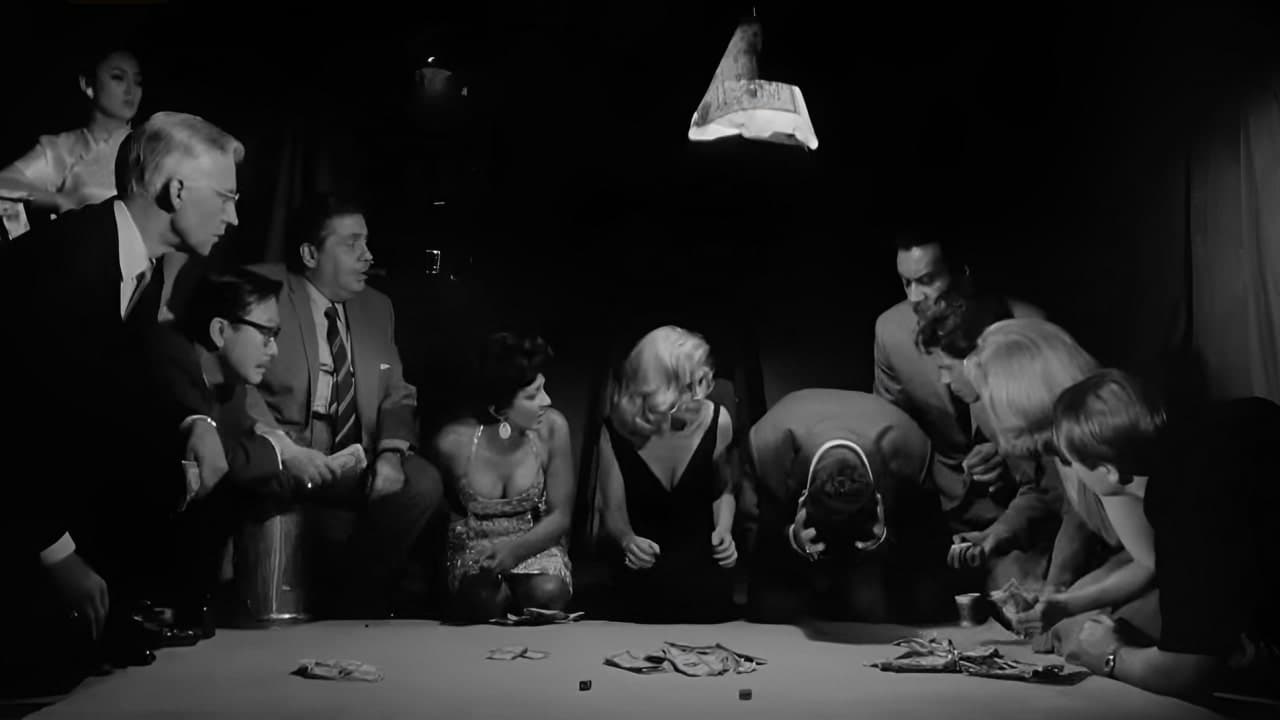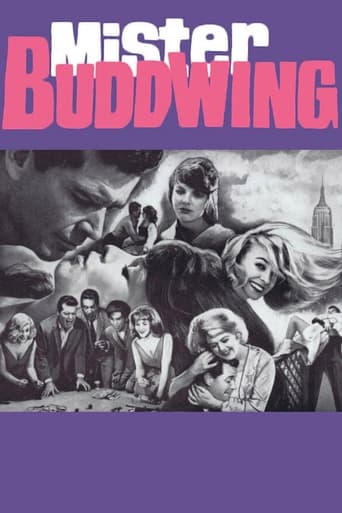NipPierce
Wow, this is a REALLY bad movie!
Neive Bellamy
Excellent and certainly provocative... If nothing else, the film is a real conversation starter.
Roy Hart
If you're interested in the topic at hand, you should just watch it and judge yourself because the reviews have gone very biased by people that didn't even watch it and just hate (or love) the creator. I liked it, it was well written, narrated, and directed and it was about a topic that interests me.
Freeman
This film is so real. It treats its characters with so much care and sensitivity.
a_chinn
Interesting James Garner vehicle has him playing an amnesiac who wakes up in Central Park and doesn't remember who he is and spends the rest of the film trying to figure that out. He has a series of dreamlike encounters with various women who he thinks he recognizes, but who mostly don't recognize him, including Jean Simmons, Suzanne Pleshette, Katharine Ross, and Angela Lansbury. Directed by Delbert Mann ("Marty"), it's stylishly shot and features crisp black and white photogrpahy by Ellsworth Fredericks ("Seven Days in May"), but the film is so utterly pretentious and lacking in a coherent narrative. Garner and the strong cast, which also includes Jack Gilford, Raymond St. Jacques, Wesley Addy, and a pre-Star Trek Nichelle Nichols, are the only thing that keeps this pretentious mess watchable. On the positive side, there is also a nice jazzy score by Kenyon Hopkins ("The Hustler" and "The Fugitive Kind"). In his memoir "The Garner Files," Garner rated this as his worst movie, writing "I'd summarize the plot, but to this day, I have no clue what it is. Worst picture I ever made. What where they thinking? What was I thinking?" Garner may be a bit too hard on this film, because it's well produced from a technical standpoint and the cast is great, even if the script is an utter mess.
wes-connors
Groggy and well-suited, James Garner wakes up in New York City's Central Park with two pills and a phone number in his pocket. Before you can say, "Been there, done that," note Mr. Garner also has amnesia. He decides to call himself "Sam Budweiser" after calling the phone number, seeing a Budweiser beer truck, then a plane. Garner first visits floozy Angela Lansbury (as Gloria). She thinks her drunken husband gave Garner the phone number for a good time. The pills are not explained. In succession, Garner encounters pretty young Katharine Ross (as Janet), sexy actress Suzanne Pleshette (as Fiddle), and blonde lush Jean Simmons - driven on screen by ex-"Dead End" kid Billy Halop! Claiming to be twenty-five years old, "Sam Buddwing" meets several other interesting New Yorkers. Garner is recognized as Jewish by cracker Jack Gilford (as Mr. Schwartz). Shabby old man George Voskovec thinks Garner's a paranoid schizophrenic. Before playing biker Buzz on "Dark Shadows" (1967), counterperson Michael Hadge believes Garner's problems to be psychosomatic. Loved it when Ms. Pleshette tells him, "We'll be tigers and we'll drink blood." You also get Nichelle Nichols tossing dice before her "Star Trek". This could have been a quirky classic with someone like George Segal or Sal Mineo in the lead. Garner needs to play something closer to home, and with a little humor.***** Mister Buddwing (7/15/66) Delbert Mann ~ James Garner, Jean Simmons, Suzanne Pleshette, Katharine Ross
katesullivan1
A quirky, moody, sleight of reality. As this movie progresses it becomes more an altered chronology of remembered events rather than a series of hallucinations. The city of New York is more than a geographical location, it is an artistic "set". The use of black and white rather than color gives this particular "set" a role in establishing the mood and tone. ALL the shots are for dramatic effect, not a wasted inch. High contrast but in a muted way. A perfect example is the black iron walkway leading to the bridge against a NY skyline and Suzanne Pleshette in a white coat and boots (ala '60"s). This composition has great dark lines and light forms but almost in an early evening haze. Then, I also must comment on Jean Simmons like I've hardly ever seen her. She was so coquettish, lush, lively and degenerate at the same time that I thought I was seeing Vivien Leigh as a young flapper. I was quite mesmerized trying to reconcile this Jean Simmons with "Young Bess". I thought she was the spark of the whole movie.The cutting and arranging of the sequences lent themselves to dramatically unfolding the story in non-chronological order. This is what made me think of "Memento".Like "Memento"'s Guy Pearce, James Garner mostly stumbles through "Mr. Buddwing" fairly stupefied. This behavior seems about right to me if someone were truly experiencing this altered reality.I recommend this movie for a dark, hushed evening, especially if you have friends willing to "suspend dis-belief" and careen around New York and James Garner's head.
Farnsbarns
I saw this movie on TNT after being intrigued by the lackluster comments from reviewers. I typically like James Garner movies. After seeing the movie, I saw it as a religious allegory. James Garner plays Everyman who was searching to answer the question "Who am I?" During the movie, I realized that he asks that question rather than the question "What is my name?" He is asking an ontological question.Furthermore, there are two scenes where he refers to the deity. In the first scene, where he is youthfully impetuous, he refers to "all the gods of the earth and cosmos" or something. In the latter reference to deity, he soberly and humbly refers to "God." This reference occurs after an intervening scene of a flashback where he tells his young wife that he loves perfection that he finds in music. He then hears Bach's Requiem Mass; they enter a church and stand before an altar. This is an example of how knowledge of nature can lead to God. As the flashbacks bring back more of his life, Garner matures as finally realizes his current, wretched condition.The final scene is quite touching. He finds life through grace. Of course, Grace is his wife's name but the scene allegorically refers to the "saving grace." The movie is not a typical amnesia movie. It is disjointed and the dialog stilted, but, like a classical painting, many scenes have meaning when viewed from a religious viewpoint. Perhaps seeing this viewpoint requires knowledge of Christian doctrine. I would've ordered it on DVD, but it doesn't seem to be available.

